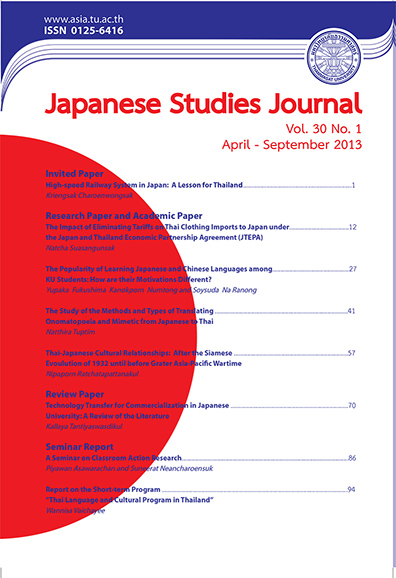Technology Transfer for Commercialization in Japanese University: A Review of the Literature
Abstract
The role of universities in knowledge-based economy has diversified and encompasseda ‘third mission’ of economic contribution beyond traditional instructional and researchmissions. Reforms in national research systems aiming to increase technology transfer andcommercialization of university research have become a significant policy. Regarding theachievement of the United States (US) in the 1980s, the Organization for Economic Cooperationand Development (OECD) governments, including Japan, have considered and implementedvarious policies to revitalize the national innovation system toward a network-based approach.The purpose of this approach was to increase and encourage university technology transferactivities and support university commercialization.
This literature review of technology transfer and commercialization in Japaneseuniversities is based on papers published between 1996 and 2013. The papers were obtainedby querying EconLit, Academic Search Complete, and Business Source Complete usingkey-words: university technology transfer, university industry collaboration, and universityentrepreneurship. This study analyzes Japanese university technology transfer from an aspectof external legal environments and then summarizes the impact on the University IndustryCollaborations (UICs) following the enactment of UIC policies in the late 1990s. Major findingsinclude that the policy initiatives had a positive impact on increasing Japanese universitytechnology transfer. However, in terms of an external legal framework, the policy initiativescould not transform the exited system of technology transfer. To increase the efficiency of thecollaboration, it is important to consider the type of university industry relationship as Japanhas a strong informal system of collaboration between firms and university professors




